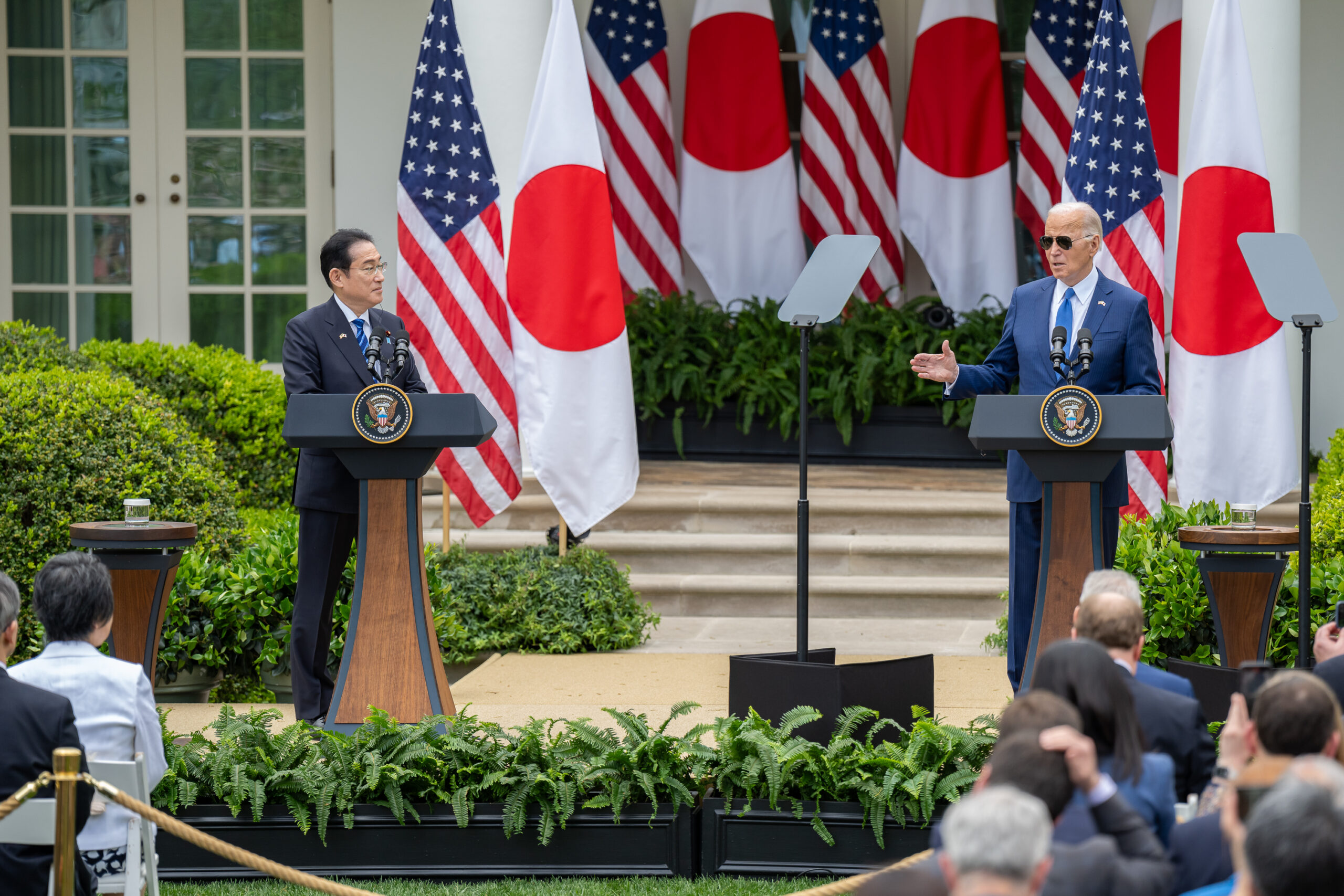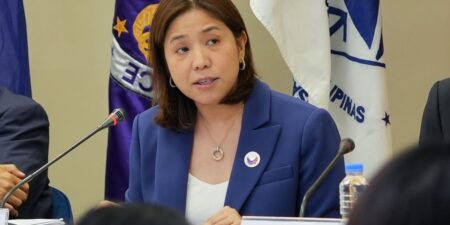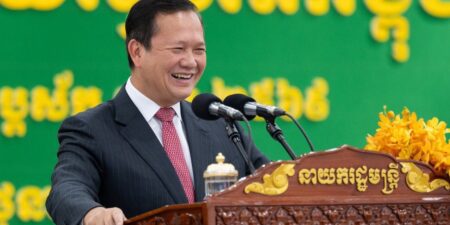The BGA Japan Team, led by Managing Director Kiyoaki Aburaki, wrote an update on Japanese Prime Minister Fumio Kishida’s state visit to the United States.
Context
- Kishida and U.S. President Joe Biden convened April 10 for a summit in Washington, D.C., where they released a joint statement titled “Global Partners for the Future.” Both leaders affirmed their dedication to advance the integration and enhancement of their respective military operations and capabilities. Moreover, they outlined plans to broaden the close bilateral security cooperation to encompass the AUKUS (Australia-United Kingdom-United States) trilateral security partnership, Korea and the Philippines. During his address to the U.S. Congress April 11, Kishida emphasized Japan’s resolve to shoulder significant responsibilities as a global partner, supporting U.S. leadership to defend freedom, democracy and the rule of law.
- Kishida expressed a strong political will for Japan to work with the United States toward promoting the defense of freedom, democracy and the rule of law. In his speech to a joint session of Congress April 11, Kishida characterized China’s external stance and military actions as “an unprecedented and the greatest strategic challenge” to international peace and stability. He said, “Japan is already standing shoulder to shoulder with the United States. You are not alone. We are with you.” While such direct expressions from a Japanese prime minister in a public speech are rare, this commitment from Japan signifies that, even in the event of heightened tensions in East Asia’s international situation, Kishida cannot step back to keep the alliance strong.
Significance
- The U.S. and Japanese leaders have confirmed various action plans for the stronger bilateral cooperation, which present numerous business opportunities and potential partnerships between U.S. and Japanese companies. Some examples are as follows:
- The United States and Japan outlined a policy to deepen the information-sharing capabilities between the Self-Defense Forces and the U.S. military. Achieving this may require aligning Japan’s security levels with those of the United States.
- The two governments agreed to mutual recognition of the cybersecurity labeling system for Internet of Things devices. This could have significant implications not only for devices connected to the internet but also for systems combining them, such as connected cars, affecting security standards and government procurement policies.
- Both sides indicated the possibility of exploring cooperation to secure critical minerals, including in the Lobito corridor in southern Africa. In this regard, active contributions from companies may receive policy support from Washington and Tokyo.
- Washington and Tokyo endorsed cooperation among their companies on projects related to carbon capture, utilization and storage and carbon recycling; building hydrogen hubs; and expanding the use of hydrogen. Increased policy support for joint U.S.-Japan projects in these fields is possible in the future.
- The U.S.-Japan joint statement underscores the significance of mutual investment and exchange. It highlights Microsoft’s artificial intelligence-related investment in Japan and Toyota’s battery production-related investment in the United States. However, Biden cautiously addressed the politically sensitive issue of Nippon Steel’s acquisition of U.S. Steel in a post-summit press conference, emphasizing his commitment to uphold promises to American workers. The statement released does not mention the U.S. dollar-Japanese yen exchange rate.
Implications
- Kishida’s visit to the United States marks a significant step forward in ongoing efforts to strengthen the U.S.-Japan alliance. This encompasses a commitment to bolster industrial cooperation in key sectors, such as defense, cybersecurity, space exploration, semiconductors, climate change and critical minerals. Businesses should define the strategic significance of their activities from the perspective of enhancing U.S.-Japan relations to actively engage with Tokyo and Washington and identify policy frameworks that enable them to maximize their corporate capabilities.
- Kishida’s political fate will be greatly influenced by the by-elections for the House of Representatives, which will be held in Tokyo, Shimane and Nagasaki April 28. His Liberal Democratic Party (LDP) is already set to lose in Tokyo and Nagasaki. If they also lose in Shimane, it will be a clean sweep. Amid a political funding scandal that brought the Kishida Cabinet’s approval rating to a record low of 20 percent since forming in 2021, attention is now focused on how much positive impact his recent visit to the United States and his diplomacy with North Korea will have on the election campaign. Kishida’s tenure as LDP president lasts until September this year. A new leadership election will be held at some point before then.
We will continue to keep you updated on developments in Japan as they occur. If you have any comments or questions, please contact BGA Japan Managing Director Kiyoaki Aburaki at kaburaki@bowergroupasia.com.
Best regards, BGA Japan Team

Managing Director
Kiyo understands the Japanese business community inside and out from his three decades working for Japan’s most powerful business organization, Keidanren. He covers international trade and investment, defense and aerospace, information technology, entrepreneurship, deregulation and data privacy policy. He also played a leading role in developing and implementing political strategies for the private sector. Kiyo has led Keidanren’s strategic international initiatives since 2013, and most recently headed up the federation’s international engagement. He worked closely with former Prime Minister Yasuo Fukuda to establish Japan’s Track 1.5 dialogues with the United States and China. The dialogues produced important results by strengthening ...
Read More


























